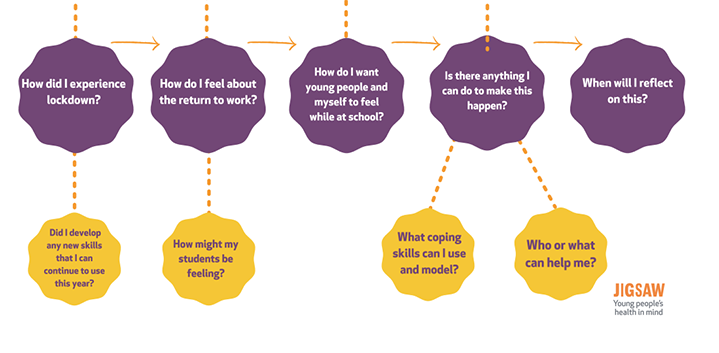School staff wellbeing and self-care
School staff wellbeing and self-care
Tuesday, 11 October 2022
The emotional ask of teachers and school staff has been significant since the start of the global pandemic. School staff have had to navigate their changing environment and support young people in their classrooms to do the same.
Challenges to self-care
Relationships and emotional intelligence are the foundations for success in the work you do every day in education. Subject knowledge and teaching methodologies only work if you have the emotional resources to build relationships with the young people you teach. And that takes work.
Empathy and emotional intelligence provide the capacity to identify and understand the feelings, thoughts and attitudes of young people.
However, the continuous demand to care for others – a daily part of the job as school staff – may cause fatigue, emotional distress or apathy. Without a focus on self-care, these demands might result in compassion fatigue. They could leave you feeling disconnected to your role and unable to be fully present in the moment.
All of this can have a significant impact on your personal and professional lives. Over time, this can lead to burnout.
Self-care does not exist in a bubble
The idea of self-care can sometimes feel like a luxury. With so much else going on, self-care is pushed aside, put on hold or forgotten about.
Worse, in their roles, teachers and school staff often face a high-stress environment with little control over policies, resourcing and available supports. Here, the notion of self-care can seem frivolous.
Self-care does not exist in a bubble. There are things that affect your self-care. Similarly, there are many things that can be influenced positively by putting self-care at the centre of your teaching role.
Elements of self-care for school staff
Self-care requires us to be proactive. We need to build it into our lives so that it becomes routine.
Unlike stress management, which is reactive, self-care makes ‘taking care of ourselves’ a priority. This keeps it on our agenda, a part of what we do every day, even when things aren’t too stressful.
Take a minute to think about each of these elements. What areas do you succeed in? Which could you focus on more often?
Do you know when you are likely to feel overwhelmed, worried or tired? Taking notice of these things can help you to plan steps to manage them.
Having activities we enjoy built into our daily routines is a proactive way of taking care of ourselves. Whether that is swimming, cooking or walking the dogs, make the time for things you enjoy.
Setting boundaries and sometimes saying “no” is the kindest thing we can do for ourselves. Know when you have reached your limit, pause and take time to reflect.
Who is there to support you? Try to connect with like-minded colleagues through shared learning, a love of teaching or simply a safe space to talk.
Take time every day to reflect. Consider how you feel throughout the day. What went well? How can you build on that tomorrow?
Self-care goals
Think about the above elements. Then set yourself two self-care goals and identify two actions you can take to achieve each goal.
Reflection exercise
Reflection is a big part of self-care. Taking the time to check in with yourself will help you to make sense of how you are feeling, plan for challenges and support you to build strong relationships with the people around you.
As you prepare for the school year, print out this handout, with some helpful questions to think about.







